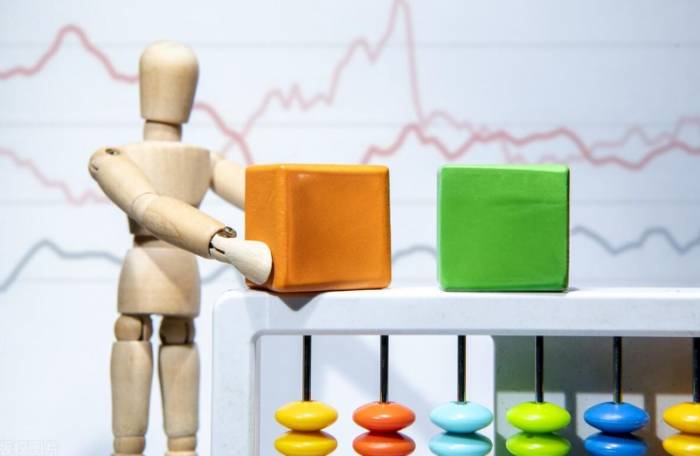This question instantly reminded me of the story in "The Turtle Trader." The author of the book taught his trading method to a friend and asked him to strictly follow the trading system. However, during the execution, there were consecutive stop losses, with the book mentioning 17 consecutive losses. After the consecutive stop losses, his friend ended the operation, accepted the loss, and stopped trading, while the author of the book persisted in executing the trading system. Later, after the consecutive losses, a significant profit-to-loss ratio market occurred, and he caught this big profit, ultimately turning the loss into a profit.
So the answer to today's question is very simple. If your trading system relies on a large profit-to-loss ratio to make a profit, then even if it triggers consecutive stop losses, you should stick to the trading system and not pause it in the middle, otherwise, it would be like falling before dawn.
This is also why there are so many people trading, some can make a profit, and some are always losing. This is the dividing line between the profit-makers and the losers.
In fact, everyone dislikes losses, which is due to human nature.
Sometimes you clearly know what is right and also know how to make a profit, but you just can't control your own behavior. This is because of the psychology of aversion to loss, feeling that "not losing money is more important than making money."
So after consecutive stop losses, you will especially want to stop trading and naturally want to avoid losses.
And at this time, you will start to make excuses for the wrong behavior to satisfy your own human needs, such as "Will this trading system fail?" "What if you lose more?" "What if there is no big market in the near future?" After finding excuses, you can naturally stop yourself.
But looking back, you calm down and become rational, and find that you are not clear-headed in trading, and you can wait for a profit if you persist a little longer, and you regret and suffer.
This is like losing weight. When you are not hungry, you clearly know that you can't eat late-night snacks. But when you are hungry at night, your mind is full of food, and you can't control your own behavior. After eating, you regret not persisting.So many people know what the right thing to do is, but they just can't do it because it's hard to fight against their own human nature. This is the most difficult aspect of trading.
The technology of trading is not difficult; the execution of trades is the hardest part.
After triggering consecutive losses, the most common attitudes are twofold:
1: A fear mentality arises, afraid of losing more money.

2: It triggers anger, unwillingness, and a loss of control in trading, similar to a gambler who has lost all reason.
Both of these are very bad attitudes that can completely destroy your execution. Trading techniques can be gradually learned and understood; they are nothing more than the common things. However, trading mentality is different. Some people are naturally disciplined and have strong self-control, while others find it harder to restrain themselves and are prone to indulgence in the face of their own human nature.
But mentality and execution can also be achieved through some training. I myself am not a very disciplined person, and it was through years of lessons and practice that I improved my self-discipline. I also share my methods with you.
Firstly, in trading, I found that heavy positions can easily lead to overexcitement. So, after I established my trading system, I started trading with light positions. It's a form of practice and also a way of trial and error.
For example, if I used to trade 3 or 5 lots at a time, now I only trade 0.5 lots, or even 0.1 lots. This way, even if I encounter consecutive stop losses, the amount of loss is very small and not painful. And when you have experienced multiple consecutive stop losses, your mentality won't be as bad, and you'll have an idea of how many times in a row you can be wrong. In the future, when you increase your position and encounter it again, you won't panic as much.
After you get used to the current position, gradually increase the position, just like running. Start by running 3 kilometers, after three months increase to 5 kilometers, after half a year increase to 8 kilometers, and after a year, running 10 kilometers won't feel tiring. It's the same principle.Do not underestimate the operation of this kind of light position practice. It can greatly help oneself to get through this period of emotional fear, and it can also generate more confidence in one's trading strategy. It can also exercise one's patience, achieving multiple benefits at once.
Additionally, when you have been implementing a strategy for a long time, in a calm state, you can see the whole picture of trading more clearly.
You will find that your trading system only adapts to a certain type of market condition. There is no perfect trading system in the world that can capture all market conditions. There will definitely be times when the trading system fails, and everyone will face the situation of consecutive stop losses in trading.
However, some people can persist to the end and make money, while others will give up halfway and lose money. The trading market is a zero-sum game. The money lost by those who give up will end up in the pockets of those who persist.
We should not always stay in the "how to avoid losses" thinking trap. It fits your human nature needs, but it does not fit reality. We should change our thinking to "it is possible to lose, but profits must cover losses, and ultimately make money." Only then will you not be afraid of losses and have the ability to execute.